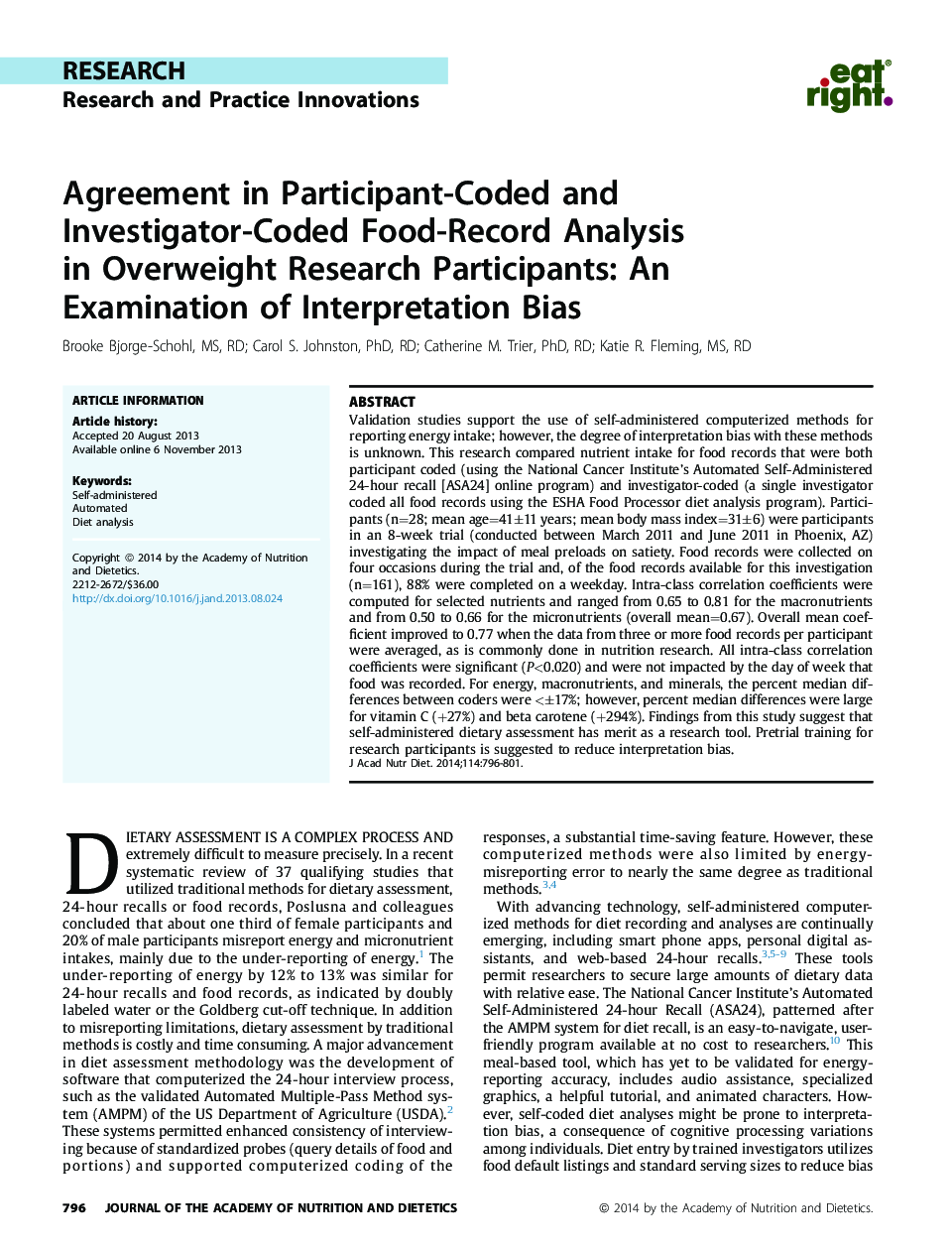| کد مقاله | کد نشریه | سال انتشار | مقاله انگلیسی | نسخه تمام متن |
|---|---|---|---|---|
| 2657008 | 1564065 | 2014 | 6 صفحه PDF | دانلود رایگان |
Validation studies support the use of self-administered computerized methods for reporting energy intake; however, the degree of interpretation bias with these methods is unknown. This research compared nutrient intake for food records that were both participant coded (using the National Cancer Institute's Automated Self-Administered 24-hour recall [ASA24] online program) and investigator-coded (a single investigator coded all food records using the ESHA Food Processor diet analysis program). Participants (n=28; mean age=41±11 years; mean body mass index=31±6) were participants in an 8-week trial (conducted between March 2011 and June 2011 in Phoenix, AZ) investigating the impact of meal preloads on satiety. Food records were collected on four occasions during the trial and, of the food records available for this investigation (n=161), 88% were completed on a weekday. Intra-class correlation coefficients were computed for selected nutrients and ranged from 0.65 to 0.81 for the macronutrients and from 0.50 to 0.66 for the micronutrients (overall mean=0.67). Overall mean coefficient improved to 0.77 when the data from three or more food records per participant were averaged, as is commonly done in nutrition research. All intra-class correlation coefficients were significant (P<0.020) and were not impacted by the day of week that food was recorded. For energy, macronutrients, and minerals, the percent median differences between coders were <±17%; however, percent median differences were large for vitamin C (+27%) and beta carotene (+294%). Findings from this study suggest that self-administered dietary assessment has merit as a research tool. Pretrial training for research participants is suggested to reduce interpretation bias.
Journal: Journal of the Academy of Nutrition and Dietetics - Volume 114, Issue 5, May 2014, Pages 796–801
